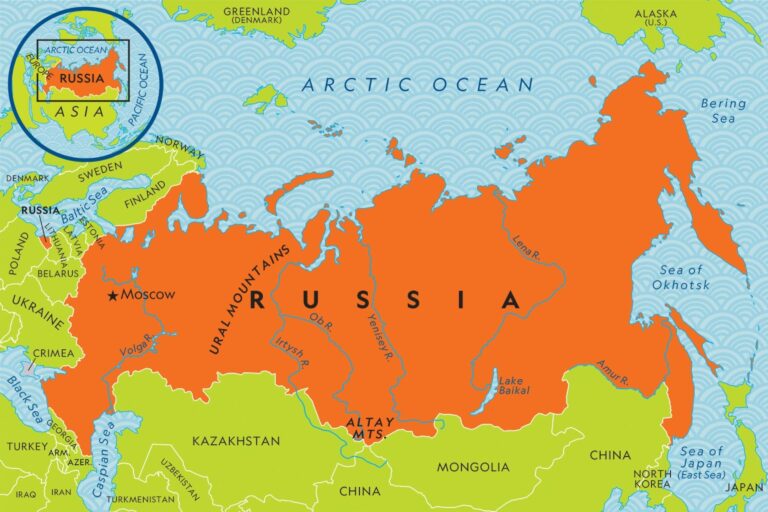Russia’s notorious Sandworm hacker group has intensified its cyber campaign against Ukraine by deploying destructive wiper malware targeting the country’s vital grain industry, according to recent reports from Recorded Future’s The Record. This latest wave of attacks underscores the escalating use of cyber warfare tactics amid ongoing geopolitical tensions, aiming to disrupt Ukraine’s agricultural infrastructure and compromise food security. Experts warn that these sophisticated intrusions not only threaten critical economic sectors but also represent a growing challenge to global cyber defense efforts.
Russia’s Sandworm Hackers Target Ukraine’s Grain Industry with Destructive Wipers
In a disturbing escalation of cyber warfare, the notorious Sandworm hacker group linked to Russia has intensified operations against Ukraine’s vital grain sector. Utilizing sophisticated destructive wiper malware, these cyberattacks have targeted critical infrastructure, aiming to disrupt agricultural production and export capabilities. The assaults not only threaten Ukraine’s economic stability but also pose risks to global food supply chains given the country’s position as a leading grain exporter. Analysts warn that the wipers are designed to irreparably damage data and systems, complicating recovery efforts and deepening the crisis for affected agribusinesses.
Key Characteristics of Sandworm’s Latest Campaign:
- Deployment of multiple wiper variants tailored for industrial control systems.
- Targeting of grain storage facilities and logistics networks.
- Use of spear-phishing emails to gain initial access to Ukrainian networks.
- Coordination with ongoing military conflict, amplifying operational impact.
| Attack Vector | Targeted Systems | Impact |
|---|---|---|
| Spear-phishing | SCADA & ICS | Data destruction, system downtime |
| Remote Access Trojans | Grain logistics servers | Operational disruption |
| Supply chain compromise | Software update channels | Persistent infiltration |
Technical Analysis Reveals Sophisticated Malware Used to Disrupt Agricultural Infrastructure
The latest investigation into the cyberattacks targeting Ukraine’s grain industry has uncovered the deployment of highly advanced wiper malware by the notorious Sandworm group. This sophisticated malware is designed not only to erase critical data but to cripple entire systems managing agricultural operations, disrupting supply chains and causing widespread economic damage. Technical analysis reveals the malware’s multi-stage infection vector includes spear-phishing campaigns, remote access trojans (RATs), and custom-built kill switches that enable precise operational timing aligned with wider geopolitical objectives.
Key characteristics of the malware emphasize its complexity and persistence:
- Modular Architecture: Allows Sandworm to update components post-infection without detection.
- Data Wiping Routines: Executed in exact sequences to prevent recovery and forensic analysis.
- Evasive Techniques: Including encrypted payloads and exploitation of zero-day vulnerabilities.
- Command-and-Control Infrastructure: Employs resilient proxy layers to maintain communication despite takedown efforts.
| Feature | Details |
|---|---|
| Infection Vector | Phishing Emails with Malicious Attachments |
| Payload Type | Multi-stage Wiper |
| Target Systems | Agricultural IoT Devices & Management Servers |
| Detection Avoidance | Encrypted Communication & Fileless Execution |
| Impact | Data Destruction & Operational Shutdown |
Experts Urge Enhanced Cyber Defenses and International Collaboration to Protect Critical Food Supply Chains
In response to escalating cyberattacks targeting Ukraine’s vital grain industry, cybersecurity specialists have called for urgent actions aimed at fortifying defense mechanisms across global food supply networks. The aggressive use of destructive wiper malware by Russia’s Sandworm hacking group has exposed vulnerabilities that could disrupt agricultural production and threaten food security on an international scale. Experts emphasize the necessity for advanced threat detection systems and real-time information sharing to mitigate the risks posed by nation-state actors intent on crippling critical infrastructure.
To effectively counter these sophisticated threats, experts advocate for a multi-layered approach involving governments, private sector stakeholders, and international bodies. Key recommendations include:
- Developing joint cyber incident response protocols to ensure swift containment and recovery
- Enhancing cross-border intelligence collaboration to track and disrupt threat actor activities
- Investing in resilient IT infrastructure for agricultural supply chain participants
- Promoting cybersecurity awareness and training among industry personnel
| Cyber Defense Strategy | Impact |
|---|---|
| Incident Response Coordination | Reduces downtime, mitigates data loss |
| Information Sharing Networks | Improves detection speed, disrupts attacks |
| Infrastructure Modernization | Enhances resilience, prevents exploitations |
| Cybersecurity Training | Strengthens human firewall, reduces risk |
In Summary
As the conflict in Ukraine continues to unfold, the deployment of destructive wiper malware by Russia’s Sandworm hacker group against the nation’s critical grain industry underscores the escalating use of cyberattacks as a tool of economic and infrastructural warfare. Cybersecurity experts warn that such targeted operations not only threaten Ukraine’s agricultural exports but also have broader implications for global food security. Monitoring and mitigating these sophisticated threats remain a priority for international cyber defense efforts as the situation develops.




